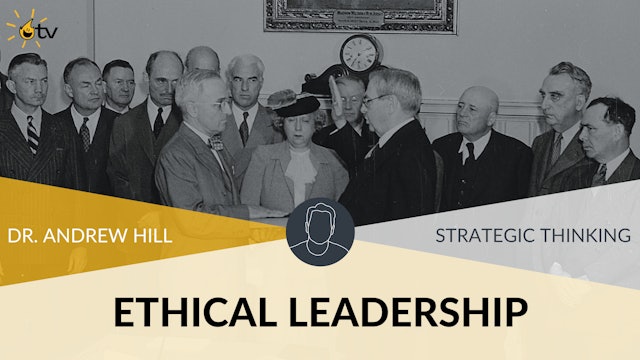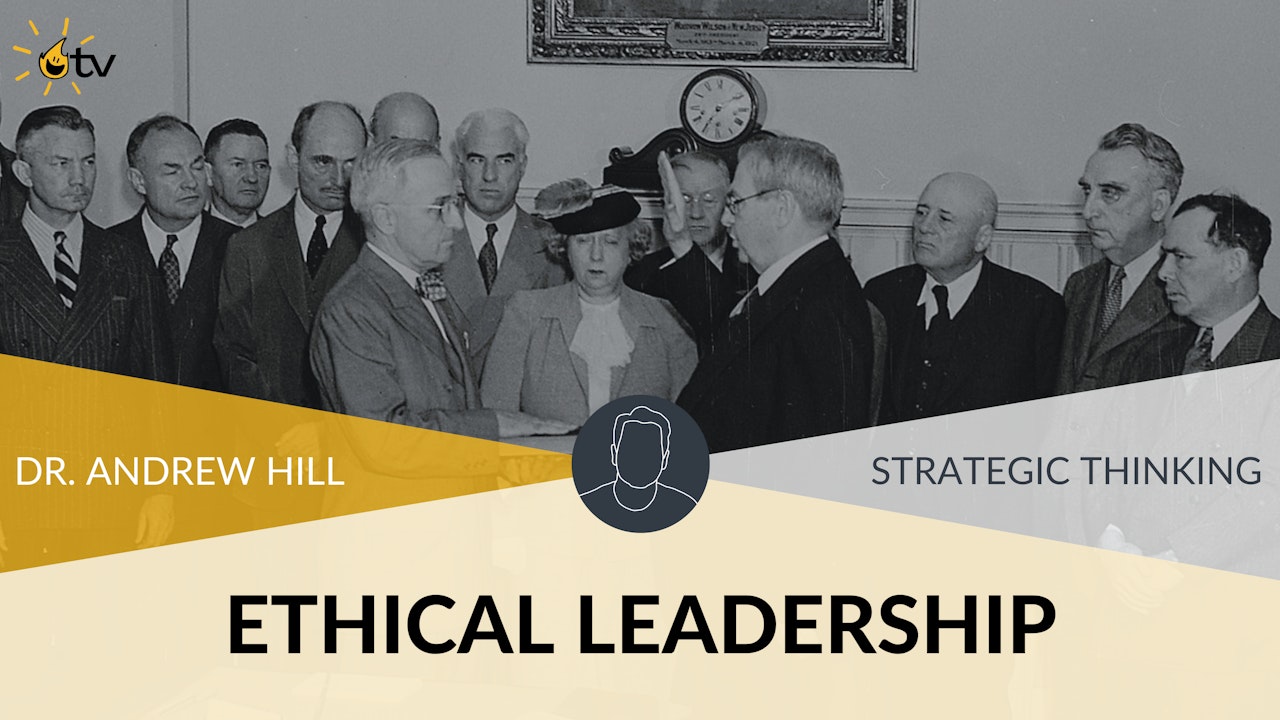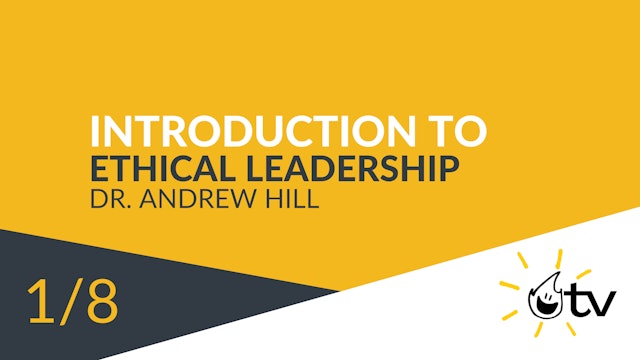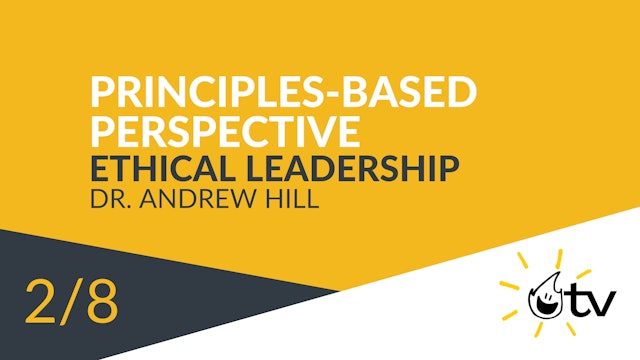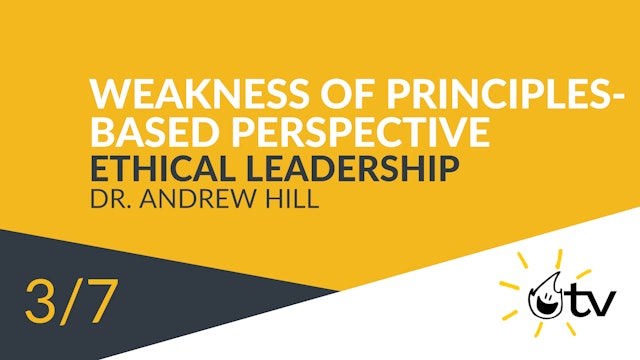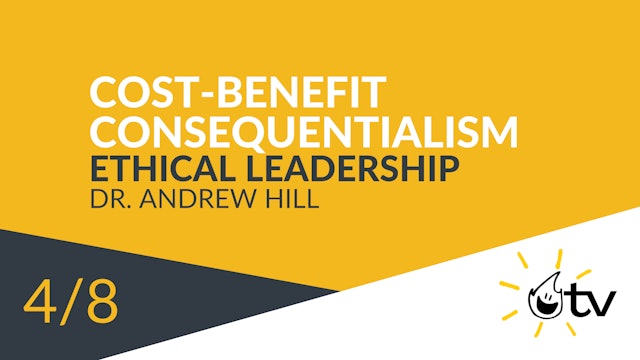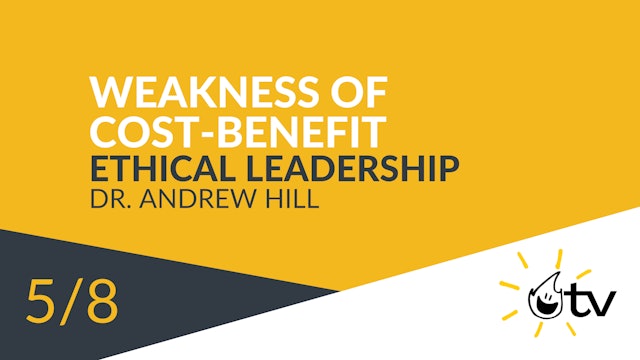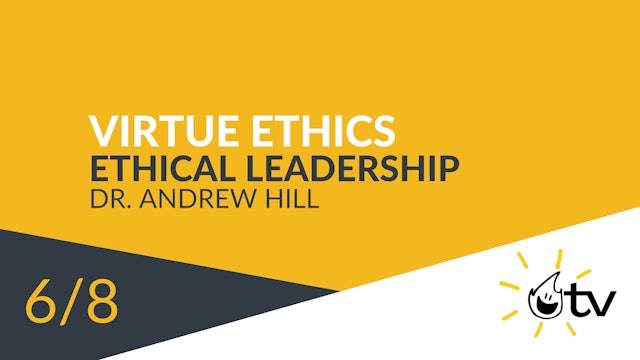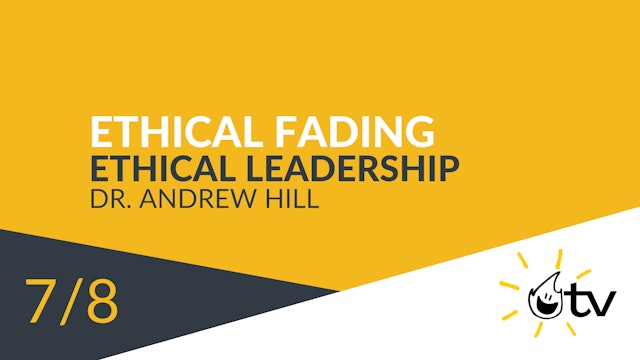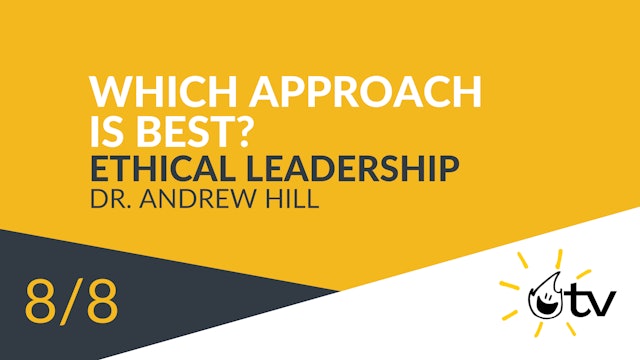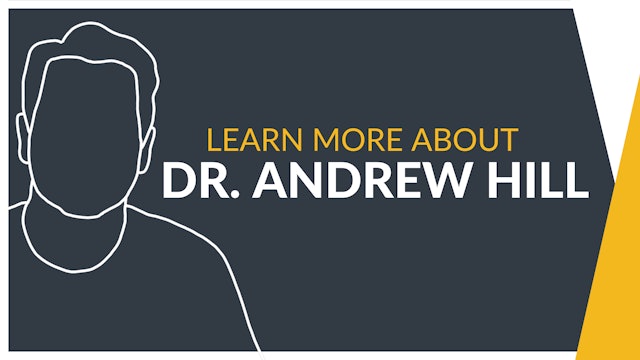Ethical Leadership
Leaders play an essential role not just in making organizational decisions, but in making right organizational decisions. Yet the world is complex, and the difference between a right choice and wrong choice is often less apparent than we would like it to be. The easy decisions usually don't make it to a leader's desk. Instead of considering one choice that looks all right and another that looks all wrong, leaders often confront choices that look like a mix of right and wrong. How do leaders consider the ethical aspects of these decisions? In this program, we explore three different perspectives for making ethical choices: principles-based decision-making, cost-benefit analysis, and virtue ethics. Each one offers a different way of examining difficult choices, and each perspective is an essential part of the leadership toolkit.
Dr. Andrew Hill is co-founder of BurnBright. He has a Doctorate in Business Administration from Harvard Business School and a Master's in Public Policy from U.C. Berkeley. Prior to founding BurnBright, he served as a professor at the U.S. Army War College, a school for senior military and national security leaders, where he was the first Chair of Strategic Leadership.
-
Intro to Ethical Leadership
One of the core responsibilities of leaders is to choose the right. Leaders are symbols for others.
-
Principles-Based Perspective
Moral principles are the foundation of ethical choice, and a popular approach to choosing the right.
-
Weakness of Principles-Based Perspective
Why can't we always act based on our moral principles? Sometimes the world presents dilemmas.
-
Cost-Benefit Consequentialism
Cost-benefit analysis determines what produces the most good for the least bad.
-
Weakness of Cost-Benefit
What are the shortcomings of the cost-benefit approach to ethics? There are limits to rationality.
-
Virtue Ethics
Virtue ethics focuses us on the mental, physical, and spiritual health of the decision-maker.
-
Ethical Fading
Sometimes we use language and decision-processes to convince ourselves that a bad decision is right.
-
Which Approach is Best?
Hint: the world is complex, so use them all.
-
Andrew Hill Bio
745 KB
Before co-founding BurnBright, Andrew was a professor at the U.S. Army War College, where he taught senior national security professionals. As the War College's first Chair of Strategic Leadership, Andrew's research focused on connecting people, strategy, and innovation. He has a doctorate from H...

